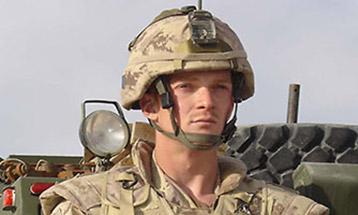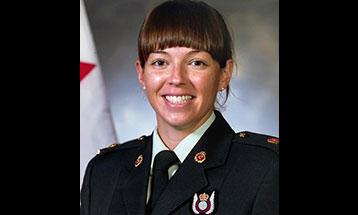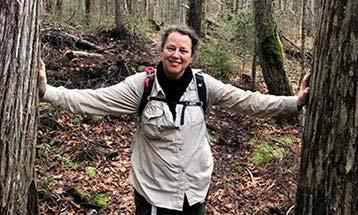Like many Veterans, Andrei’s career in the Canadian Armed Forces took him around the world. Today, he continues to operate internationally, planning logistics and managing operations for Team Rubicon. This organization mobilizes Veterans to continue their service, leveraging their skills and experience to help people prepare, respond, and recover from disasters and humanitarian crises, around the world. These can range from hurricanes in the Caribbean to flooding in Alberta, and any place in between.
Andrei’s military career began when he joined the infantry reserve in 1997, at the age of 17. He was in basic training on his 18th birthday. “It was an occasion that was short on cake,” he recalls.
He fit in well with the Reserves, serving in 2000 in Bosnia. He transferred to the Princess Patricia’s Canadian Light Infantry, and was again in Bosnia in 2002.
Andrei attended the University of Manitoba under the University Training Plan for Non-Commissioned Members. After receiving his Bachelor’s degree, he was commissioned as a Logistics Officer and assigned to the First Service Battalion.
Later, as a member of the Canadian Special Operations Regiment, he was deployed to Afghanistan, Libya, Africa and Europe. After five years in CSOR, he returned to the regular army in 2014 as a Reserve Force liaison officer, and then released for the first time in 2014.
He returned to the CAF by 2017, and spent three years with the Fourth Canadian Division Headquarters in Toronto. In July 2020, he was medically released.
Today, he lives near Toronto with wife Jillian, who completed medical school in 2016 and is now in her final year of medical residency, and daughter, Lauren, 9.
Transition: good and…not so good
So what was the difference between the transitions in 2014 and 2020?
“My transition in 2014 was … not very good. There was no support. One day you’re in the service, the next you’re out. There was no guidance. I felt a bit bitter about it,” he recalls.
Making the transition for the second time, in 2020, was completely different, especially with the pandemic. “I had low expectations, but my case manager was amazing,” Andrei says.
Andrei was also able to use the CAF’s job search services to look for a new, post-service career. He applied to an opening with Team Rubicon Canada, which was looking for someone with experience working with former military members, and in organizing and deploying people with skills needed in emergency relief efforts around the world.
He got the job.
Andrei’s career prepared him to step seamlessly into the job as Director of Operations and Programs. His role includes coordinating volunteers, training and resources to get boots on the ground to respond to emergencies. This has ranged from sandbagging after flooding in Fort McMurray, to water purification after the hurricane in Honduras.
Advice to members approaching transition
“Have a plan,” he says “Approach transition like any other operation. Evaluate the risks, your own strengths and weaknesses, and seek advice from others who have done it before—people who have been there.”
Taking action before release date is critical, Andrei says. “Even three months before your release date is too late.”
He encourages members to develop connections in the job market, use networking resources like LinkedIn, research how to write a résumé and attend job fairs—before release.
“Remember,” he stresses, “Life after service is not going to be the same as it was in the military. Employers won’t look after you like the military does. They’re concerned about what they need.”
Finally, “Prepare to be flexible, and don’t be afraid of new opportunities.”
Team Rubicon received funding from the Veteran and Family Well-being Fund to increase the number of Veterans trained in needed skills and ready to deploy to emergency relief around the world, reach more volunteers in Canada, and increase its organizational capability.
Date published: 2021-02-10



